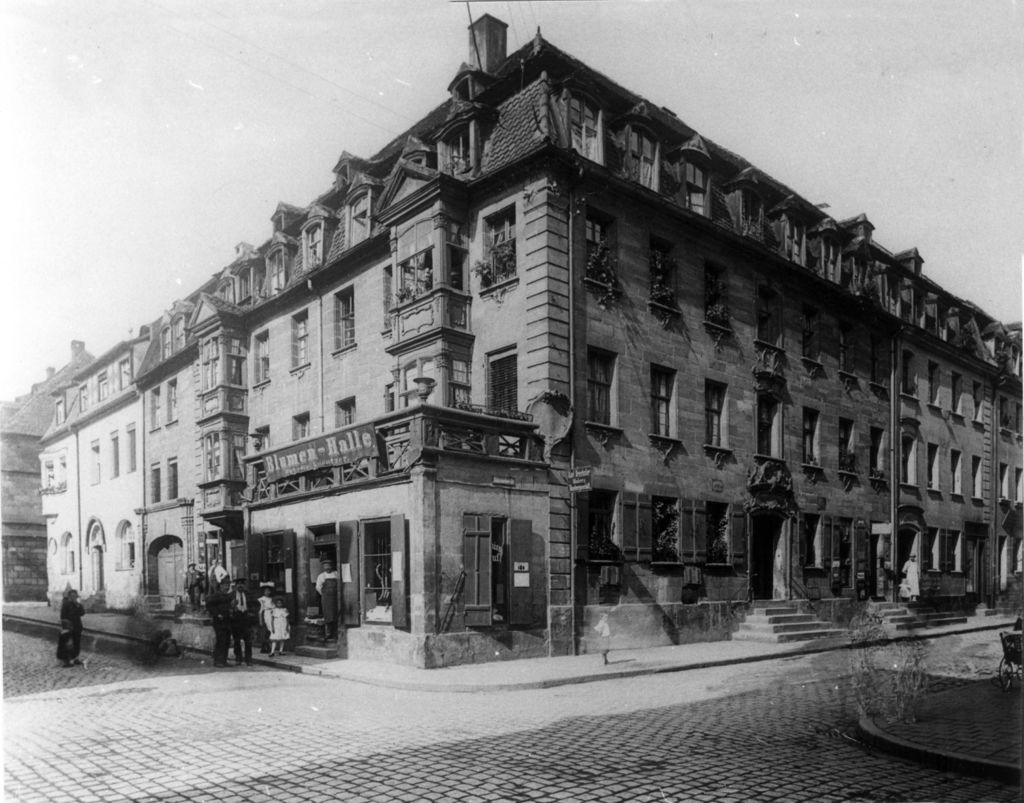1810 $5 Capped Bust Half Eagle, Large Date Large 5 NGC AU53
The 1810 issue has the highest mintage in the series (100,287). However, less than 1 percent of that mintage is believed to have survived into the 21st century. The great majority of half eagles from that era were melted down for their bullion value. Therefore the 1810 $5 Capped Bust half eagle is undeniably a rare coin in each and every grade. NGC has graded 15 in AU53 with 231 finer.
Das Reich'sche Haus circa 1910 in Furth, Germany, where John Reich was born and grew up. It was as an apprentice to his father, Johann Christian Reich, that he learned the craft of die sinking (medal and coin engraving).
John Reich's obverse design for the half eagle (1807-1812) presents a buxom Liberty facing left, bordered by seven stars on her left and six on her right. Her cloth cap is inscribed with LIBERTY, and curly locks of hair fall from the edge of her cap, tumbling down to her shoulder. This look is quite European, different from Robert Scot's earlier American folk art approach. Reich's "signature" is a characteristic notched point on the lowest star on the right. Half eagles have such a notch facing the coin's rim. The date is found below the bust of Liberty.
The reverse depicts an eagle with outstretched wings, perched upon a palm branch and grasping arrows in its left talon and the olive branch of peace in its right. A federal shield is found upon its breast, and a ribbon floating above the majestic bird displays the motto E PLURIBUS UNUM. The inscription UNITED STATES OF AMERICA and 5D. encircle the eagle. Among Reich's innovations are placing the denomination upon all gold and silver coins. In addition to designing this coin, he also engraved the working dies.
| PCGS # | 8108 |
|---|---|
| Grading Service | NONE |
| Year of Issue | NONE |
| Grade | NONE |
| Denom Type | N/A |
| Numeric Denomination | $5 |
| Mint Location | NONE |
| Designation | NONE |
| Circ/UnCirc | Not Specified |
| Strike Type | N/A |
| Grade Add On | NONE |
| Holder Type | N/A |




